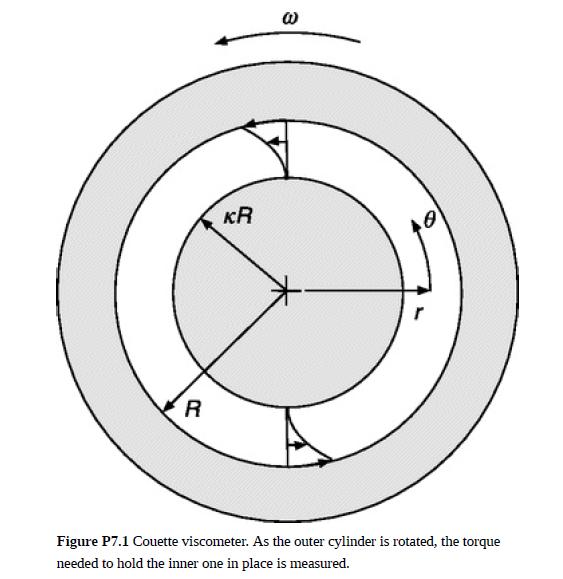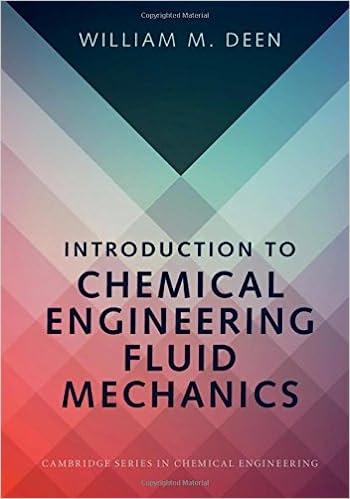In a Couette viscometer the liquid to be studied fills the annular space between two cylinders, as
Question:
In a Couette viscometer the liquid to be studied fills the annular space between two cylinders, as shown in Fig. P7.1. The inner and outer radii are κR and R, respectively. The viscosity is determined by measuring the torque required to keep the inner cylinder stationary when the outer one is rotated at a constant angular velocity ω. The cylinders are long enough that the end effects associated with the top and bottom can be neglected and it can be assumed that v and ℘ are independent of z as well as of θ.
(a) Show that a unidirectional velocity field with vθ = vθ(r) is consistent with continuity and determine vθ(r).
(b) Relate the torque on the inner cylinder to ω, the dimensions, and μ.
(c) As the gap between cylinders is made smaller, the shear stress at the inner one approaches that for plane Couette flow. For the torque obtained from the planar result to be within 1% of the exact value, how large must κ be?
For more on the construction and operation of Couette viscometers and a summary of findings concerning the stability of laminar flow between rotating coaxial cylinders, see Bird et al. (2002, pp. 89–93).
Step by Step Answer:

Introduction To Chemical Engineering Fluid Mechanics
ISBN: 9781107123779
1st Edition
Authors: William M. Deen





